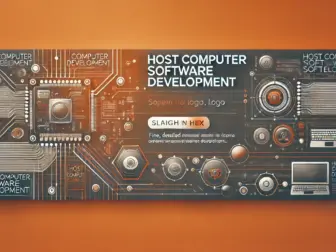Tag - Node.js in host computers
Exploring the Power of Node.js in Host Computers
Node.js is a versatile and powerful JavaScript runtime that has gained immense popularity among developers for building server-side applications. While Node.js is commonly used in server environments, its capabilities extend beyond that to host computers as well. By leveraging the features of Node.js on host computers, developers can create a wide range of applications and tools that enhance performance, scalability, and efficiency.
One of the key advantages of using Node.js on host computers is its event-driven, non-blocking I/O model. This allows developers to build highly responsive applications that can handle multiple concurrent operations without blocking the execution thread. By taking advantage of this feature, developers can create applications that are fast, efficient, and scalable, making them ideal for use on host computers.
Another benefit of using Node.js on host computers is its extensive library of modules and packages. Node.js has a rich ecosystem of modules that can be easily integrated into applications to add new functionality or streamline development processes. This enables developers to quickly build robust applications that meet the specific requirements of host computers, whether they are desktops, laptops, or servers.
Node.js also offers excellent compatibility with a wide range of operating systems, making it a versatile choice for developing applications on host computers. Whether you are working with Windows, macOS, or Linux systems, Node.js provides a consistent and reliable platform for building and running applications. This cross-platform compatibility ensures that your applications will run smoothly on any host computer, regardless of the operating system it is running.
Additionally, Node.js supports a variety of programming paradigms, including procedural, functional, and object-oriented programming. This flexibility allows developers to choose the best approach for their specific needs and preferences when developing applications on host computers. Whether you prefer a more structured approach like object-oriented programming or a more functional style, Node.js provides the tools and support you need to build high-quality applications.
In conclusion, Node.js offers a powerful and versatile platform for developing applications on host computers. By leveraging its event-driven, non-blocking I/O model, extensive library of modules, cross-platform compatibility, and support for various programming paradigms, developers can create highly efficient and scalable applications that run smoothly on a wide range of host computers. Whether you are building desktop applications, server tools, or system utilities, Node.js provides the tools and capabilities you need to succeed.
